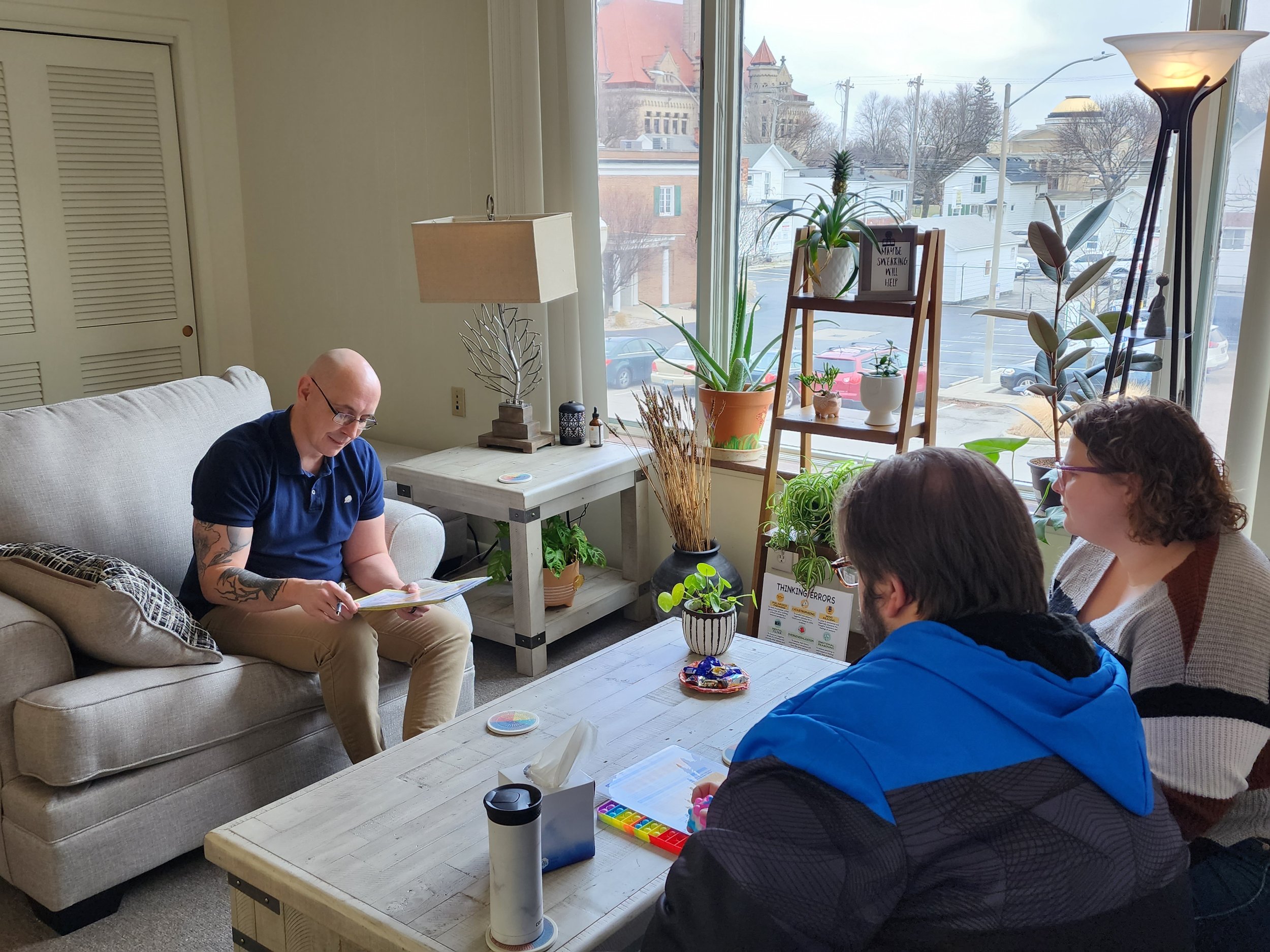Just learning to cope will not solve the underlying problem.
Sound House Counseling, LLC is an inclusive collective of therapists who combine their lived experience, education, and practice wisdom to connect with people and build a therapeutic relationship. Our therapists work to help people manage their mental health symptoms in a way that restores their lives so that they can work to heal deeper underlying issues. People learn to build meaning, connect to their values, and breathe new life into their relationships. If you are looking for new coping skills, communication skills, or healing from the past, we can help. Sound House Counseling, LLC provides a variety of therapeutic services for individuals, couples, and families and we work with all age ranges.
We are not buttoned-up blank slate therapists who stay silent and nod their head for the whole session. We might be experts in our areas, but we struggle with our marriages, families, and mental health issues just as our clients do and that’s what makes us relatable. We have all had our turn sitting on that couch and we know how frightening that can feel.
Study after study has shown that the therapeutic relationship between the client and therapist is the top predictor for successful outcomes in therapy, even more so than what treatment modality the therapist uses (EMDR, IFS, CBT, DBT, LMNOPQRST) * The bottom line is that if you are not connecting with your therapist then you are less likely to get results you are looking for with therapy.
*
Developing the Therapeutic Relationship: Integrating Case Studies, Research, and Practice
Tishby, O., & Wiseman, H. (Eds.) APA, 2018
Psychotherapy Relationships That Work
Norcross, J.C., & Lambert, M.J. Psychotherapy, 2018 [introduction to special issue]
Psychotherapy Relationships That Work: Vol. 1. Evidence-Based Therapist Contributions
(3rd ed.) Norcross, J.C., & Lambert, M.J. (Eds.) Oxford, 2019
Psychotherapy Relationships That Work: Vol. 2. Evidence-Based Therapist Responsiveness (3rd ed.), Norcross, J.C., & Wampold, B.E. (Eds.) Oxford, 2019
Ready to get started?

